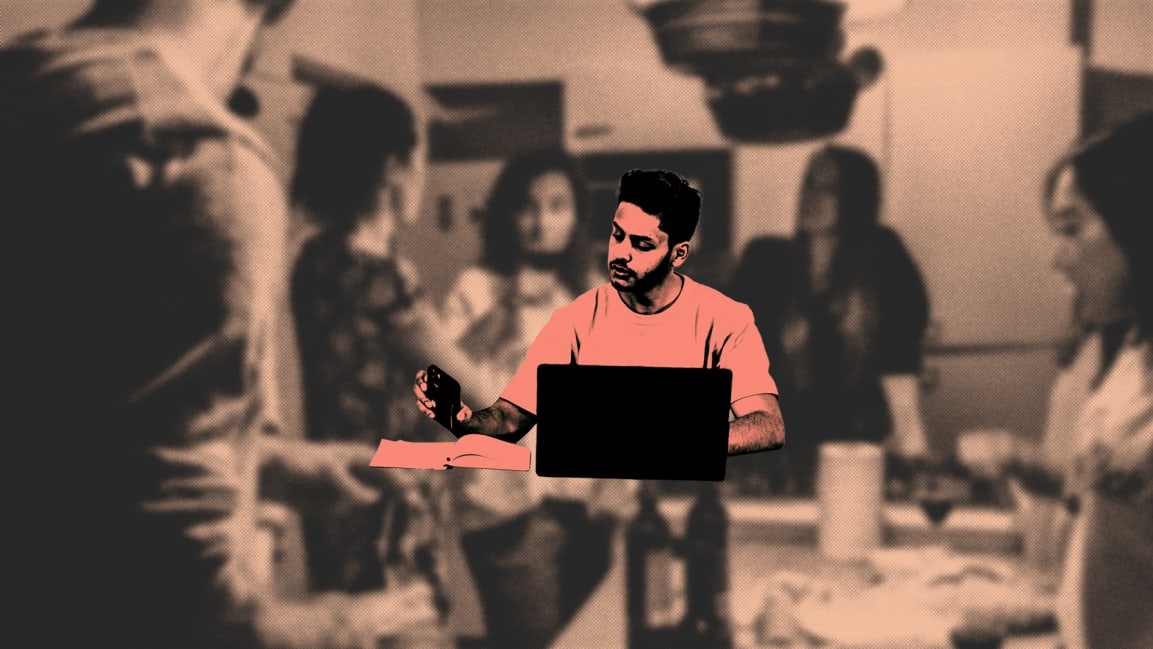We need to talk about why so many people are lonely
We live in an age in which it’s easier than ever to communicate with other people. Yet, we’re seemingly lonelier than ever. While doing research on young people entering the workforce prior to the pandemic, workplace expert and speaker Ryan Jenkins found that most of the young people with whom he spoke reported feeling lonely on a regular basis. “That broke my heart,” he says.
What’s more, Jenkins found that people were reluctant or even embarrassed to talk about their loneliness. There was an element of shame attached to it. But the pandemic has changed things, he says, both by making the problem worse and opening up communication about loneliness.
For their new book, Connectable: How Leaders Can Move Teams from Isolated to All In, Jenkins and coauthor Steven Van Cohen conducted in-depth research about loneliness in the workplace, and the findings are surprising. Fully 72% of workers are lonely, often because of remote work and hybrid workplaces. And that’s a problem. An increasing body of evidence shows that loneliness is linked to a variety of physical and mental health issues, ranging from depression to substance abuse.
And their findings indicate that this is a problem for companies, too. Lonely workers are seven times less likely to be engaged at work and five times more likely to miss work due to stress or illness. They are also twice as likely to think about leaving their employers. So, there’s an incentive for employers to watch for this issue and address it.
Why we’re lonely
Why are we so lonely? One obvious answer seems to be social isolation. For roughly two years, people have been directed or encouraged to stay away from each other to prevent spreading the COVID-19 virus. And while that may be part of it, loneliness isn’t just the absence of people, Van Cohen says. “I can be surrounded by lots of people. I can be communicating with people all day, every day. But that doesn’t mean I’m not going to be lonely,” he says. Instead, it’s about how we connect with others. Connection and interaction make the difference. “If we’re not making time to connect, oftentimes we just don’t think about it, or we assign it as an unimportant detail on a very long to-do list. And it just doesn’t get done.”
Van Cohen uses his days of record-buying in this youth as an example. He recalls that he would travel to the record store and ask someone to play the record in the store. He would talk to other people about the record. Then he would buy it and get together with a friend to listen to it. The process of buying music has turned from what was, for him, a very social, interactive experience to an isolated experience of choosing digital music. For others, the shifts may be in areas other than music-buying, but the effects are the same: less interaction with others.
This is related to another cause—dependency shift. Problem-solving often required outreach and connection with others, Van Cohen says. If a faucet needed repair, he might call his father or someone else knowledgeable about how to fix it. Now, he says, he can simply go on YouTube and get the information he needs. “I don’t need to depend on anyone else,” he says.
Because digital solutions offer a convenient substitute for human interaction in our busy lives, we end up more isolated—and lonely—unless we’re intentional about making time for connection, he adds.
And while social media may offer the appearance of connection, that’s really just an illusion, Jenkins says. “It’s this idea of social snacking, right? They’re actually just snacking, not giving a full nourishing meal that would occur in a live, in-person, or [even] virtual conversation,” he says.
What we can do about it
So, what can we do to address this wave of loneliness? There are actions both employees and employers can take. First, we have to lose the overall stigma around loneliness and talk about it when it’s happening. There’s nothing wrong with you if you’re feeling lonely, Jenkins says. In fact, others around you are likely feeling that way, too. “It’s a universal human condition,” he says. “And the more we have conversations around it, the less power and stranglehold loneliness will have on us.”
From company culture and coworker perspectives, “be ‘interruptible,’” Van Cohen urges. He says we spend so much time trying to block out disruptions that we can actually ward off the very interactions that would make us less lonely. Sure, you need time for focused work; but there should also be times when people can reach out to you for questions and discussion. Showing people they are valued and needed is an enormous factor in mitigating loneliness, he says.
Companies and individuals can also be mindful about “socializing smarter,” Van Cohen says. But that doesn’t mean another happy hour, which takes people away from their family and personal time, can foster cliques and leave everyone feeling tired the next day, he adds.
A better tack would be to take time during a meeting to have people share what they did over the weekend or to give each person time to talk about something personal of which they’re proud. “It creates this lowering of the professional armor,” adds Van Cohen, “where we can start to really understand and see people from the personal side and get to know them more as who they are versus just how they show up at work.” Be intentional about connecting with coworkers and employees.
Reducing loneliness isn’t always easy, but it’s an effort worth making within organizations. Finding more opportunities to connect in an authentic way can have benefits that extend far beyond the work world.
Fast Company , Read Full Story
(33)



